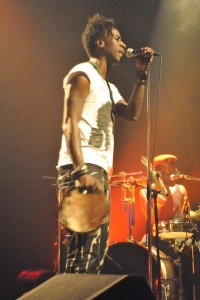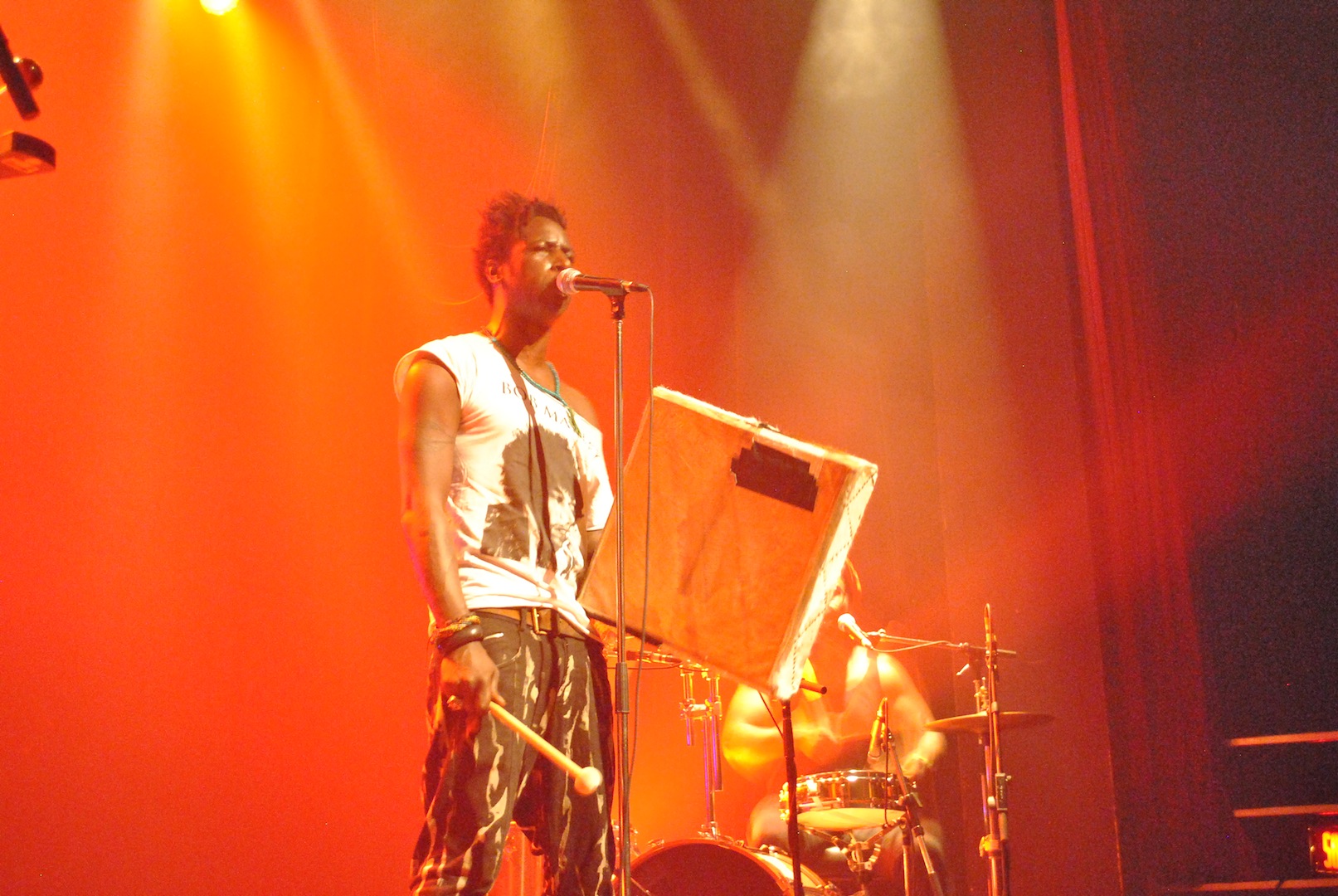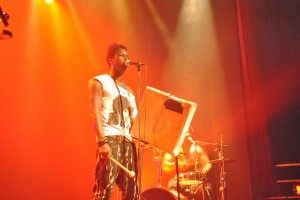
With Bob Marley’s face brimming from his chest, Williams pounded the same eight-note sequence over and over: his three-piece band quickly joined suit and they eased into Volcanic Sunlight’s first high-tempo song, “Patience.”
With this raucous entrance, Williams had signalled his arrival. Most artists would be sapped of energy on the last night of a North American tour, but Williams clearly had something left in the tank and wanted to share it with his audience.
It was in stark contrast to the conversation I had with him last week where he sounded relaxed, almost zen-like, in preparation for that evening’s show in Salt Lake City.
The musician, poet, actor and activist from Newburgh, New York turned 40 last month; I took the opportunity to wish him a happy belated birthday, especially because mine’s a day after his.
“Actually I turned 10,” he said, reminding me that his birthdate, Feb. 29, only comes around every four years. “It’s a great way of keeping me young at heart.”
Williams’ fourth album was released in May last year. The title and album cover, which shows him outstretched in front of a glowing sun, signify a new beginning. If The Inevitable Rise and Liberation of NiggyTardust! was the album in which his message of change and empowerment was most evident, his latest release overflows with optimism and rebirth with song titles such as “New Day” and “Triumph.”
“I had nothing to prove on this album, it was just a matter of being myself,” he said.
He made a point of stopping between songs during his show to encourage the audience to dance, and pretend like we were alone in our bedrooms. The songs off Volcanic Sunlight resonate with the same appeal.
“The last album was a statement,” he said. “This is the sequel, in a way, to Niggy Tardust. He is a character who has evolved—it’s the idea of him coming through a door so everybody could see him. Now that he’s through, this is what he sounds like. It was a natural progression,” he said.
His influences resonate in both his lyrics and sound. You’ll hear the social consciousness of Public Enemy and Run-D.M.C., the jazz-rap of De La Soul and the rhythm and beats of African music.
Williams’ talents as poet and musician have never been more evident than on Volcanic Sunlight. The hip-hop/rock interchange combined with poetry that examines religion, spirituality and the existential puts him in a category of his own, far away from the superficial candy-pop you can easily find on today’s most popular radio stations.
When Williams’ show neared its end, he approached a woman on the side of the stage and spoke to her for a minute. He re-emerged with a familiar red square pinned to his shirt, the emblem of the student fight against the rise in tuition fees in Quebec. The fact that it appeared next to Bob Marley’s face didn’t go unnoticed and the audience let out a powerful roar when they saw it.
“It’s important to fight for what you believe in,” he said. “I commend you for that.”





